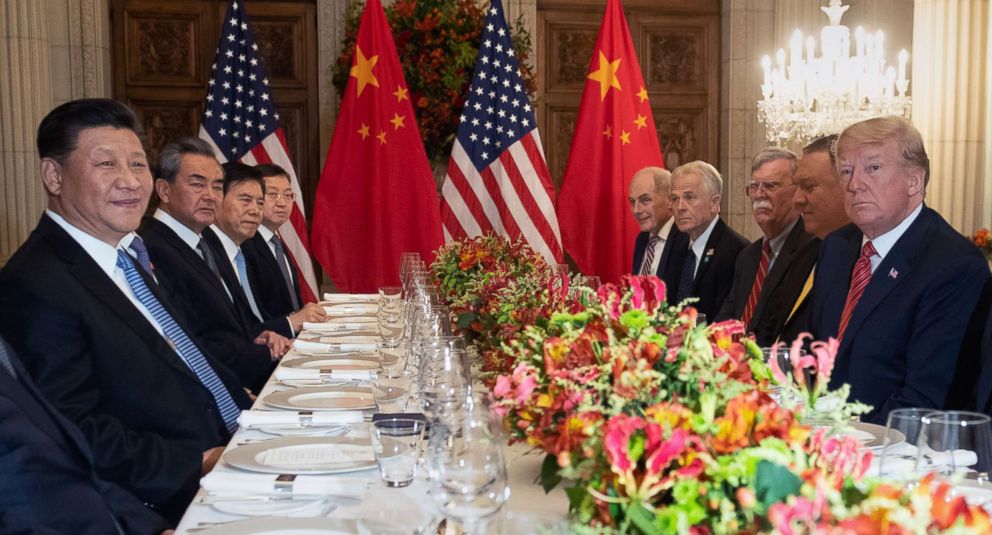The Trump Administration has temporarily eased its trade war with China after a meeting between Donald Trump and Chinese leader Xi Jinping at the G20 summit in Argentina.
After the 2 1/2-hour discussion, the Administration said it will not raise tariffs on $200 billion of Chinese goods — 40% of Beijing’s exports to the US — from 10% to 25% “at this time”.
The increase on the tariffs, imposed in late September, was scheduled for January 1.
The White House said that in exchange, China agreed it will purchase a “very substantial” amount of agriculture, energy, and other goods from the US.
Trump announced the first tariffs, on $50 billion of Chinese goods, in late May. He stepped up the dispute in the autumn, with the warning that it could be extended to all Chinese imports.
Beijing has responded with duties on $110 billion of US products, covering most American goods.
The battle has already affected American agriculture. Soybean exports in areas such as Iowa are down more than 90%.
Trump has misrepresented the tariffs as bringing “billions” of dollars in a windfall to the US, rather than being an effective tax on producers and consumers through higher import prices.
Ceasefire or Short Pause?
Both sides focused on a positive presentation after the extended meeting. Chinese State Councilor and Foreign Minister Wang Yi said the two leaders agreed in a “friendly and candid” encounter to open markets to each other and to step up trade negotiations.
Chinese state media report said “an important consensus” was reached in “the direction for Sino-US relations in the near future”.
Trump used his standard hyperbole as he returned from Buenos Aires on Air Force One:
If it happens it goes down as one of the largest deals ever made. It will have an incredibly positive impact on farming, meaning agriculture, industrial products, computers, every type of product.
He did not note that China gave no specific figure for its “willingness” to take in more US exports.
The White House statement said the two leaders agreed to immediately begin negotiations, including on long-standing US concerns over forced technology transfer, intellectual property, and cyber-theft.
The statement said both parties agreed to complete negotiations within 90 days or the 10% US tariffs will rise to 25%.
The Chinese did not mention the 90-day time limit and the warning of the imposition of the 25% duty if the Americans were not satisfied.

